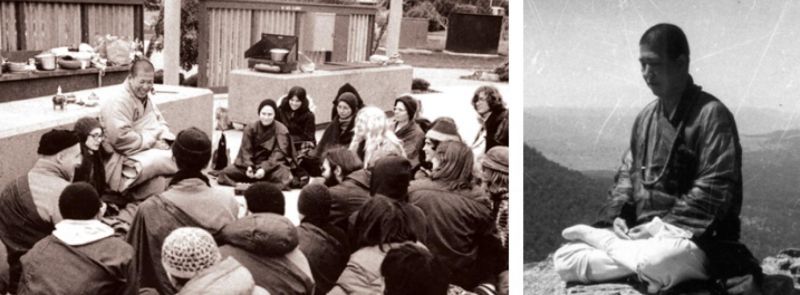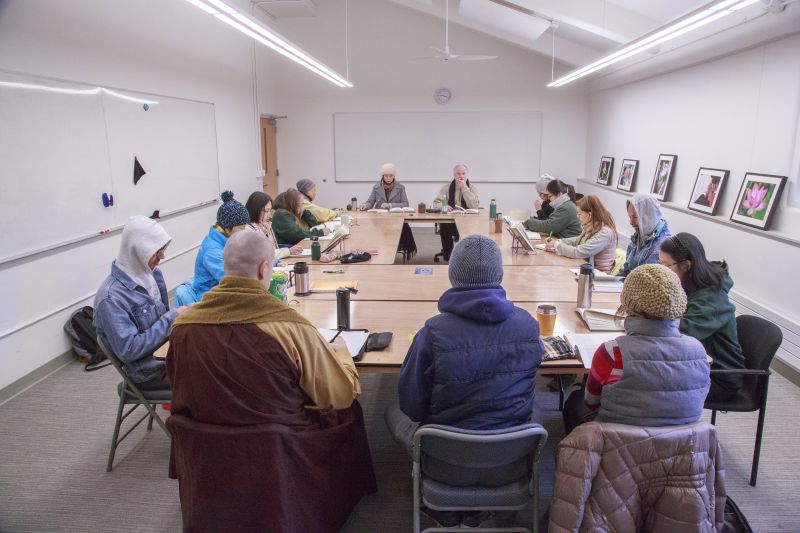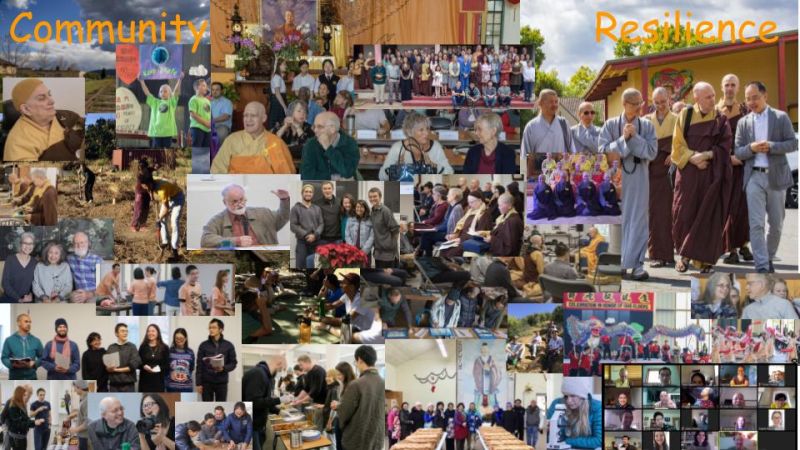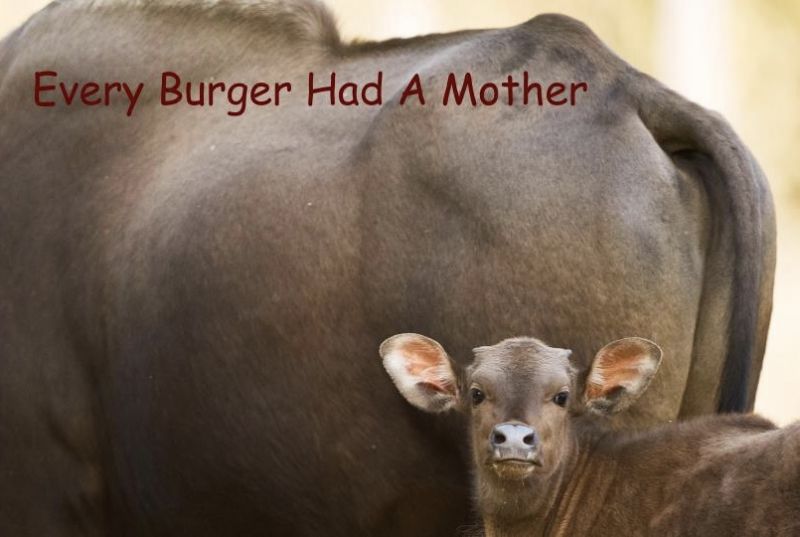Words From Master Hua And His Senior Disciples

“According with conditions, we do not change. We do not change, yet accord with conditions.” --- Venerable Master Hsuan Hua
On January 10, 1973, in the midst of a flu epidemic that was killing thousands of people worldwide, the Venerable Master Hsuan Hua, founder of the City of Ten Thousand Buddhas (CTTB) and the Dharma Realm Buddhist University (DRBU), wrote a poem to ease people's minds, appreciate the present and understand blessings.
"When you reflect on the suffering of sickness,
Having no illness becomes a blessing.
When you reflect on the suffering of hunger and cold,
Eating your fill and being warm becomes a blessing.
When you reflect on the suffering of calamities,
Dwelling in peace becomes a blessing."
--- Venerable Master Hsuan Hua, in the book Timely Teachings: Gold Mountain Monastery in the Early 1970's / Buddhist Text Translation Society
As Dharma Realm Buddhist University (DRBU) closed due to the coronavirus pandemic, a few Venerable Master Hsuan Hua’s senior disciples offered some words to ease the students’ minds during the 21-Day Coronavirus Response Challenge.

“I will continue to teach until I’ve learned.”
--- Dr. Martin Verhoeven
Virtue is the Root --- A Message from Dr. Martin Verhoeven, Dean of Academics, DRBU
“Virtue is the root; all else are the branches.” It would seem that in this time of crisis, facts, science, data would be the most important thing—the "root." But without trust, integrity, and selflessness (all root virtues), facts become opinions, and opinions slide into self-serving disinformation. My takeaway from this is: the “overreaction” we are seeing at the medical/public health level with directives to “shelter in place,” “avoid crowds,” even “do not go to hospitals,” etc. are based on facts that the public itself is unaware of, and purposely so; because if they knew the facts there would be panic. The problem is, however, that this kind of approach (follow the orders/directives of the authorities) depends on trust, confidence, respect, etc.—all qualities that have been eroded and squandered by the misconduct and self-serving antics of the very people we now should be able to turn to for leadership and trust, starting at the top with (both here and abroad). This is not a political indictment, but rather a moral remonstrance and reminder: cultivating oneself is the root of everything else; of being a person, a friend, a parent, a son/daughter, an official, a leader. Without virtue, the center will not hold. Almost more than the biological virus, this spiritual infection is the pandemic. “Fake news,” “alternative facts,” conspiracy pandering, disinformation up the wahzoo... now has created a pre-existing compromised immune system of the body politic, and so everyone is at a deeper level, “a vulnerable population.” It may seem to some that “cultivating virtue”—the very core of education at DRBU—is old-fashioned, out of touch with the needs and dynamics of the “real world,” but I would argue it is right at the very root and heart of the matter.
Have you noticed? There are more birds and birdsong now as humans shelter-in-place than last month. The birds have more room to fly, to nest, to sing and be heard. A good time for chan.
Take care of yourself.
Marty
.jpg)
The Ordinary Mind Is The Way -- A Message from Alan Nicholson
Every moment is an opportunity, when we study the Buddha Dharma. We shouldn't be drawn to lofty and profound places as the focus of our study. This is what is meant by, "The ordinary mind is the Way. The straight mind is the place for cultivating the Way." Speaking of gratitude, the Venerable Hui Neng [the Sixth Patriarch of Chinese Chan Buddhism] said, "Gratitude is being filial to your parents." This just means one sincere heart of no self and benefiting others, which is the foundation of virtue and cultivating the Way. Venerable Master [Hsuan Hua] frequently said that if one can be filial to their parents, they can be filial to the Buddha; if they can truly be filial to the Buddha, they can be one with the Way. So a sincere and grateful heart is fundamental to opening our wisdom.
Kind Regards in Dharma,
Alan
.jpg)
Remember the Kindness of Our Parents --- A Message from Terri Nicholson
The kindness of parents is profound and important.
Their tender concern never ceases.
From the moment they wake each day,
Their thoughts are with their children.
Whether the children are near or far away,
Parents think of them often.
Even if a mother lives for a hundred years,
She will continue to worry about her eighty-year-old child.
Do you wish to know when this kindness and love ends?
It doesn’t even begin to dissipate until her life is over.
The Buddha Speaks the Sutra of the Deep Kindness of Parents, which is Difficult to Repay
Many students have found themselves back at home with their parents after having lived independent, adult lives, and this can be a challenge. We think that our studies and spiritual path have changed us and yet when we are back with our parents and siblings, old habits reemerge. Perhaps, we attempt to share our new found insights and our parents find them troubling, or we have learned things we think would help our parents and yet they are not willing to listen. Being together without many outlets can intensify these conflicts. Yet it is right at this place that cultivation happens. On a more humorous note:
“When I was a boy of fourteen, my father was so ignorant I could hardly stand to have the old man around. But when I got to be twenty-one, I was astonished at how much he had learned in seven years.” --- Mark Twain
Today, remember the kindness of your parents and see if you can catch yourself before you react in an old habit pattern and find a new, kinder, more respectful one. Be patient with yourself. If you only succeed one time in ten, it is still a good beginning.
_copy_2.jpg)
“Our shared environment is the karmic result of the sum total of the thoughts and intentions that every single individual projects outwardly in his or her sole actions.”
--- Dr. Ron Epstein, from the book Responsible Living: Explorations in Applied Buddhist Ethics - Animals, Environment, GMOs, Digital Media
Tune Into That Wonderful Compassionate Stillness -- A Message from Dr. Ron Epstein, Professor Emeritus and co-founder of DRBU
Hello to past, present and future Dharma-friends. Beginning to look more and more like 21 days is our warm up sprint, in preparation for the marathon. The former helps us to have confidence that we can do the latter. If we want to make it to the finish line, we need to ground ourselves in the Middle Way and nourish our natural rhythms and wholesome habits. When I am feeling most isolated and least spiritually competent, I try to remember that we are all fundamentally interconnected all the time. And when I have trouble doing that, I need to be kind and patient with myself and everyone I am artificially physically, but not really socially, distant from. Then it is easier to put my polluted thoughts and emotions aside for a few moments. Then I can tune into that wonderful compassionate stillness that flows everywhere and let its light wash through me. That is truly everything ok. For me, for everyone.
Peace and Joy,
Ron
“That deep reality of Nature is not separate from our own fully enlightened nature. When we purify our minds, we experience the true nature of Nature [...] As one’s mind is purified, one’s actions are purified… As we act more responsibly towards life in Nature or life as Nature, the more our actions will purify and clarify our minds. Consideration of our actions and their consequences will lead us to more environmentally responsible ethical behavior.” --- Dr. Ron Epstein in Environmental Issue: A Buddhist Perspective

Community Resilience -- A Message from Dr. Susan Rounds, President of DRBU
As we come near the end of this 21 day challenge, let us be grateful for what we have learned about ourselves, and about our community. We have learned that we don’t have to be physically present to be in community. What drew us to DRBU in the first place sustains us in the places where we have gone to shelter: the priceless opportunity to investigate texts drawn from the long history of human inquiry into the meaning of life and the nature of reality, and a willingness to do the difficult work of remaining open and vulnerable as we work and study together.
We have learned that we are a resilient community. Resilience comes from undergoing hardships and difficulties without being submerged or defeated. As the Venerable Master reminds us,
Everything’s a test
To see what you will do
If you don't recognize what's before your face,
You'll have to start anew.
We are fortunate to be part of a community that has pulled together in the face of the current crisis. As a community, we have worked together to get students resettled, to foster electronic connections, to send messages of support, and to offer help to those who are housebound because of age or other conditions that make them especially vulnerable.
Although we are now scattered across the country and around the world, we remain connected by the bonds of friendship, by the experiences we have shared, and by the knowledge that we will come together again to continue the work that we have always done, and continue to do, together.
Sincerely,
Sue
"Education is without beginning or end. There is not a single location that is not a place of learning, and there is not a single moment that is not a time for learning." — Venerable Master Hsuan Hua
A Timeless Teacher and Role Model --- A Message from Dharma Master Heng Chih
In his book Reflections in Water Mirroring Heaven: Records of Turning the Tide of Destiny, at one point Master Hua tells us what it was like to be an itinerant monk. For a while in his life, he was always on the move; right now in our lives, we are sheltering in place. Opposite situations. And yet this short description he gives of how he dealt with constant change certainly is worthy of consideration by us in our holding pattern, as we adjust to our stasis.
“Let me tell you that during the period when I chose to learn by traveling, I did not have any expectations to be treated well by anyone. I did not socialize, did not seek personal advancement or gain, nor did I scheme for advantages. Wherever I was, I kept a low profile, kept to some obscure corner so as not to attract any attention, looking like someone being ignored. I never sought for attention or companionship. Wherever I went, I was always alone and solitary. I treated everyone with great reverence regardless of whether they were young or old, seasoned monastics or recent novices. I bowed to them all. I rarely spoke; I appeared dumb. If someone asked me about Heaven, I answered him with Earth; if someone asked me about others, I answered him with self. When someone asked, ‘Do you know such and such a person?’ I remained silent even if I knew that person and equally quiet when I did not. No one knew what I was all about.”
In Dharma,
Heng Chih

Every Burger Had A Mother --- A Message from Rev. Heng Sure
The practice is to make every meal and every bite measure up to the ethical standards of your heart. Let our aspirations for well-being continue through mealtime.
Heng Sure
A Song Shared by Rev. Heng Sure:
Every Burger Had A Mother
(To the tune of: “Come Back Liza”)
Every burger had a mother,
No more creatures should die
Why do people eat like goblins?
No more creatures must die.
Chorus:
I love life and I love kin,
You’re related to me
I love the skin I was born in
You’re related to me.
For every dinner, every day
No more creatures should die,
Billions killed in the cruelest way,
No more creatures must die.
Chorus:
You love life and you love kin,
You’re related to me
You love the skin you were born in
You’re related to me.
When I think of the meat I’ve eaten
No more creatures must die.
See the faces of the lives I’ve taken,
No more creatures should die.
Chorus:
You’ve got feathers, you’ve got fins,
You’re related to me
You’ve got fur and you’ve got wings
You’re related to me
I want no faces on my dinner plate
No more creatures should die
No eyes look back with fear and hate
No more creatures must die
The calf can hear his mother cry
They’re related to me
He must know they’re about to die
They’re related to me
I don't remember who I've been
You’re related to me
Fur, or feathers, scales or skin,
You’re related to me.
Other Sources:
How can I Make Sense of What’s Going On Right Now? (Hear from Professor Doug Powers)
Eight Ways To Stay Grounded During Uncertain Times (Hear from DRBU Students)
Join the 21-Day Karunavirus Challenge on KindSpring
Posted by Xiao Shu on Apr 8, 2020

